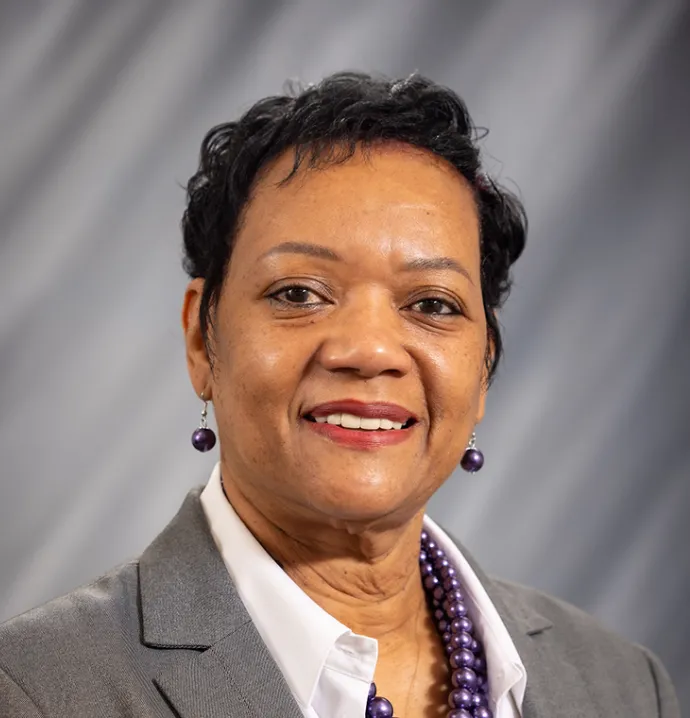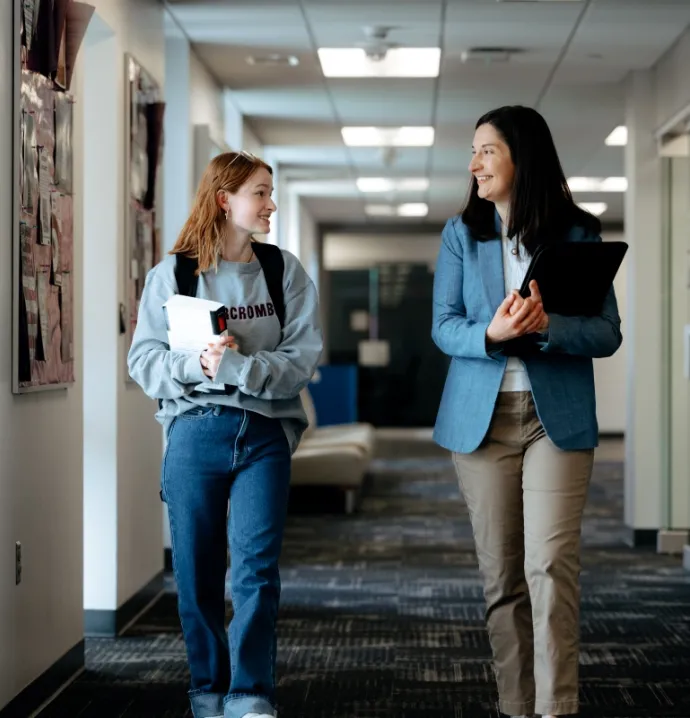Creating a community
Creating a community
Growing up just outside the Meskwaki Settlement in Tama, Iowa as the oldest of four siblings, Alma Pesina knew she wanted to go to college. But as the first member of her family to take that step, Pesina sometimes felt like she was on her own.
Born to a Meskwaki mother and a Mexican father, Pesina struggled to reconcile her two identities when she enrolled at the University of Northern Iowa in 2017. Without a role model to guide her, Pesina initially turned away from her Indigenous roots.
“I felt I had to hide my Native identity, because there was no one around me I could relate to,” Pesina said. “I thought it would be easier to pick one side over the other. But when it really came down to it, I just felt really lost.”
Now a senior TESOL major set to graduate this December, Pesina wants to help the next generation of Indigenous students by forming a group that supports and embraces Native students.
“I know that as a Native student, it can be really hard to survive out there,” Pesina said. “We just really want to create a space and a community for Indigenous students, especially being on a campus as predominantly white as UNI is. We’ll be able to support each other and help each other navigate the college experience.”
With campus once again open and new incoming first-year and transfer students swelling the Indigenous student ranks, a group of seven Indigenous students is working with UNI art instructor Angela Waseskuk and Jamie Chidozie, Director of Diversity, Inclusion, and Social Justice, to complete the paperwork to form the group.
“Indigenous students may make up a small percentage of UNI's total population, but they are integral to the community here,” Waseskuk said. “To have people around you that understand you, your culture, and look like you can sometimes be taken for granted by the dominant population. It can feel isolating and exhausting to not have that anywhere on campus. An Indigenous and Native student group is crucial to building community and a sense of belonging among BIPOC students and other minoritized groups on our predominantly white campus.”
Chidozie said an Indigenous student group would be a welcome addition to campus.
“Every student at UNI should feel like they are accepted and have a community to turn to when times are tough,” Chidozie said. “We are proud of the resiliency of our Indigenous students, and we want to afford them every opportunity to flourish.”
The other students involved in the group are Arianna Sprague, Azra Papakee, Iverson Aragon, Rylee Campbell, Kaisha Wanatee, Abbie Morgan and Rammy McKee.
Pesina said many Indigenous Panthers are also first-generation students trying to navigate an unfamiliar experience
“We are in a space that, initially, was not intended for us. I don't think it was really envisioned that Natives would attend college or pursue higher education,” Pesina said. “It’s imperative for us to have that representation and to educate the campus and the student population that we’re still here and trying to get an education.”
As an officially registered student group, Indigenous students will be able to take advantage of the resources and funding UNI affords other student groups on campus to host culturally relevant events and speakers.
The new group will also help educate other students and faculty to understand that Indigenous students are not part of one homogenous culture - that they are unique individuals pursuing the same goals as other students.
With her time at UNI at an end, Pesina is looking to the future. She hopes to use her TESOL skills at the Meskwaki Settlement School to both teach and preserve the Meskwaki language. With her Native identity now fully embraced, Pesina wants to pay it forward to the next generation.
“Being an Indigenous person in today’s society is really powerful, because it shows the amount of resilience our ancestors had to get us to where we are now, where we can pursue a higher education,” Pesina said. “It allows you to be a person who really inspires the next generation to continue the empowerment of Indigenous identity.”




